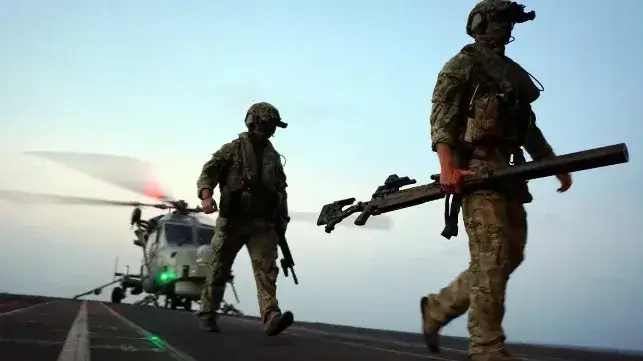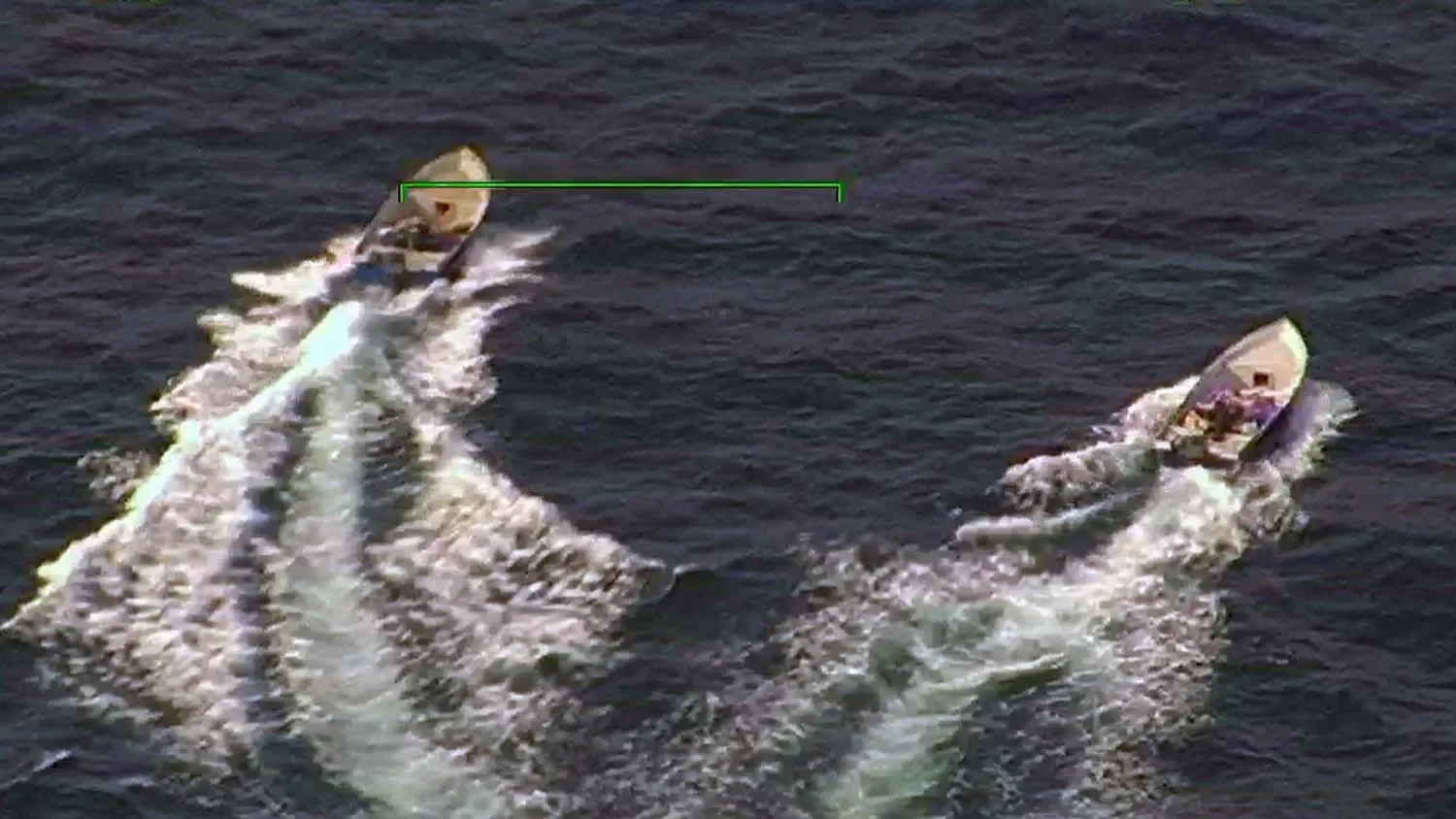Royal Marines Shoot Out the Engine of Smuggling Boat in Gulf of Oman

The Royal Marines have adopted a U.S. Coast Guard tactic for the task of stopping smuggling boats in the Gulf of Oman. The location may be different, but the method remains the same: shooting out the outboard engines.
In a recent interdiction, frigate HMS Lancaster's Wildcat helicopter spotted three high-speed skiffs at dawn in the Gulf of Oman. The aircrew shadowed them from a distance, and Lancaster launched a mini-drone helicopter to take over the pursuit to monitor the boats. The Wildcat returned to Lancaster's deck and picked up a team of Royal Marines snipers.
Re-equipped and refueled, the aircrew gave pursuit and closed in on the three high speed craft. When the boat crews realized they were being followed, they began jettisoning their cargo and sped up to 40 knots to escape.
Two of the skiffs were abandoned, but the third tried to get away. When in range, snipers aboard the helicopter opened fire and disabled it with a single shot to the outboard engine.
"Non-lethal disabling fire has not been seen in the region and was essential in preventing the drug runners from moving their product," said pilot Lt. Guy Warry. "Being the Wildcat pilot carrying out a live weapons firing on drug-running skiffs whilst flying backwards to provide a stable platform for the snipers was definitely a career highlight."
On collection of the jettisoned cargo and boarding of the boats, Lancaster's team found 1.5 tonnes of drugs, including hash, crystal meth and heroin. The estimated street value was in the range of $45 million.


that matters most
Get the latest maritime news delivered to your inbox daily.
Courtesy Royal Navy
It is believed to be the first time that the live-fire tactic has been used to disable a suspected smuggling vessel in the Gulf region, according to the Royal Navy. It is an everyday tactic for U.S. Coast Guard interdictions in the busy smuggling zones of the Caribbean and Eastern Pacific: the USCG's sharpshooting specialists intercepted their 1,000th boat last month, marking 25 years of armed interdiction. When expertly performed, the tactic is less-lethal, and fatalities are vanishingly rare.
